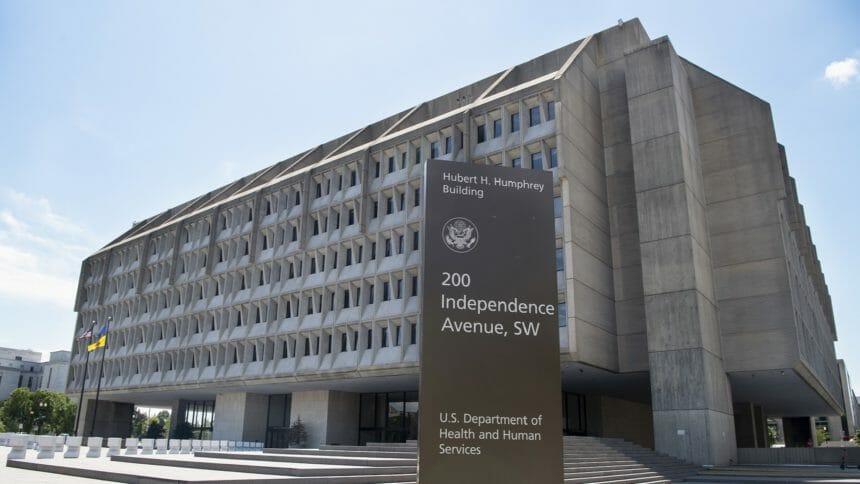
An interim rule from the Centers for Medicare & Medicaid Services is “concerning” because it could lead to expanded federal regulation of assisted living, according to a speaker Wednesday on an Argentum Advocates member call.
Earlier this month, CMS announced a new rule that requires skilled nursing facilities and intermediate care facilities to report weekly COVID-19 vaccination status data for both residents and staff members. As McKnight’s Senior Living previously reported, CMS said at the time that it was seeking comments on “opportunities to expand these policies” to assisted living communities, group homes and psychiatric residential treatment facilities.
Alex Somodevilla, an associate with Foley Hoag LLP, said the comments could lead to CMS expanding its regulatory and oversight authority into the senior living industry in ways not seen before.
“Generally, for assisted living facilities that actively participate in Medicaid and Medicare programs, CMS would have authority to impose requirements,” Somodevilla said. “Normally, assisted living is outside the purview of CMS regulatory authority. That’s why the interim final rule is so concerning. Normally, CMS stays out of the assisted living industry.”
Approximately 15% of assisted living communities accept Medicaid, Argentum Vice President of Government Relations Paul Williams said, but a large tranche of communities never have done so. In between are communities that may accept Medicaid in cases of a state-specific spend down rule or communities that have not traditionally had residents who are Medicaid beneficiaries although the communities are certified Medicaid providers.
“We’re trying to cross-section the different possibilities for Medicaid in assisted living that may not just be as cut and dry, to see what, if any, authority CMS will have on those providers,” Williams said.
CMS is accepting comments through July 12. Argentum is assembling a task force on the issue to solicit relevant comments from its members that will be incorporated into a comment letter to the agency.
More COVID relief?
Potential good news for operators, however, according to Argentum, is that a Phase 4 Provider Relief Fund announcement is imminent, and it could offer additional funding to cover COVID-19 expenses incurred during the second half of 2020.
The anticipated fourth round of funding is “welcome news,” Williams said. Argentum, he added, is continuing to follow up with the Health Resources and Services Administration, part of the U.S. Department of Health and Human Services, on what the association believes is a slow pace of processing claims from prior rounds, as well as denials and underpayments.
“Overall, there has not been the kind of relief that’s been made available to many other industries. It just has not reached senior living providers,” said Dan Samson, director of government relations. Argentum is relaying that sentiment to lawmakers and policymakers as they discuss this next trance of Provider Relief Funds, he added.
Assisted living first was recognized during Phase 2 Provider Relief Fund distributions, with Phase 3 distributions covering pandemic expenses from the first half of 2020.
Liability protections
Williams also discussed the industry’s continued emphasis on pursuing liability protections for senior living companies through state partners and organizations. Argentum, he said, is working with a cross-industry group of stakeholders — including the American Seniors Housing Association, the American Health Care Association / National Center for Assisted Living and Leading Age — on the industry-wide effort.
Recently, Missouri passed Senate Bills 51 and 42, which include senior living in its liability protections. The legislation, set to take effect Aug. 28, was sent to Gov. Mike Parson for his signature. Kentucky also enacted Senate Bill 5 after Gov. Andy Beshear did not take action for or against the protections.
Texas is close to passing liability protections for the industry, with a vote in the House expected soon after passage in the Senate. West Virginia Gov. Jim Justice signed the COVID-19 Jobs Protection Act to eliminate business liability related to COVID-19.
In Pennsylvania, the House is considering HB 605 to require compulsory arbitration of COVID-19 actions alleging personal injury or death. Gov. Tom Wolf previously vetoed a bill giving senior living and care organizations limited liability protections.
In Nebraska, the COVID-19 Liability Protection Act would provide broad immunity for assisted living communities and other businesses facing lawsuits connected to the pandemic. The bill has been sent to Nebraska Gov. Pete Ricketts for his signature.
Other states adopting immunity for businesses to limit their exposure to COVID-19 related lawsuits include Alabama, Arkansas, Florida, Iowa, Kansas, Louisiana, Nevada, North Carolina, Ohio, Oklahoma, Tennessee, Utah and Wyoming.


